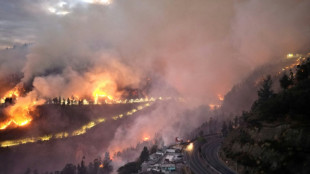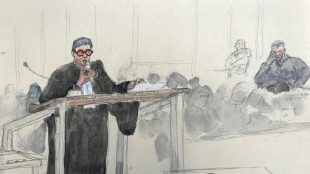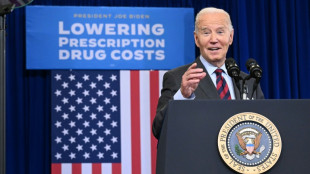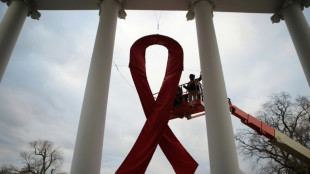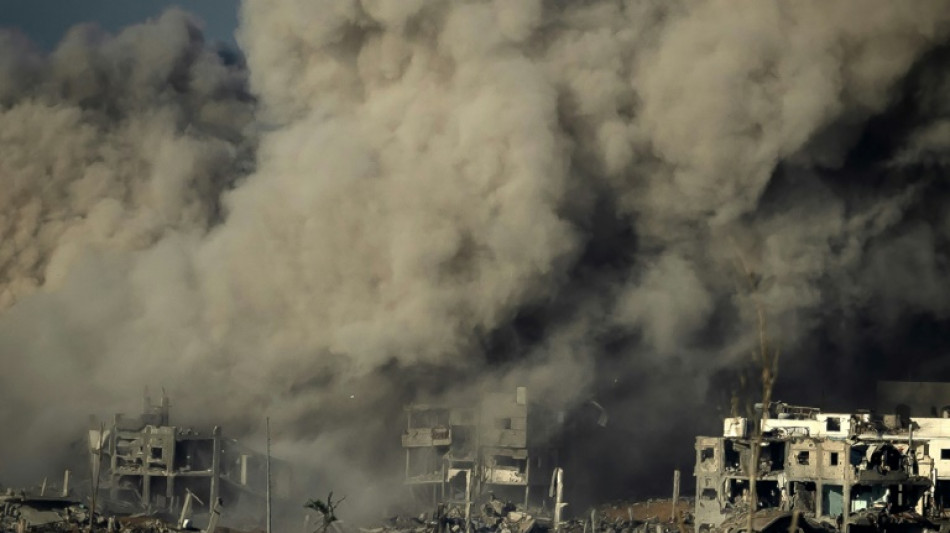

Israel presses Gaza hospital raid
Israel renewed its operation at Gaza's largest hospital Thursday, targeting what it maintains is a Hamas command centre concealed in a complex sheltering more than 2,000 civilians.
"Tonight we conducted a targeted operation into Shifa hospital. We continue to move forward," Major General Yaron Finkelman, the head of Israeli military operations in Gaza, said in a social media post.
Gaza's health ministry, which is controlled by Hamas, said Thursday that Israeli bulldozers had "destroyed parts of the southern entrance" of the hospital.
Both Israel and its top ally the United States say Hamas have a command centre below the Al-Shifa complex, which has become a focal point in the 40-day-old war.
The Palestinian militant group and directors at the hospital have denied the charge.
Before Israeli forces first stormed the hospital complex on Wednesday, UN agencies estimated that 2,300 patients, staff and displaced civilians were sheltering at Al-Shifa.
"The protection of newborns, patients, medical staff and all civilians must override all other concerns," UN humanitarian chief Martin Griffiths said. "Hospitals are not battlegrounds."
But Israel's army claimed the initial raid had uncovered military equipment, weapons and what spokesman Daniel Hagari described as "an operational headquarters with comms equipment."
A journalist in contact with AFP, trapped inside Al-Shifa, said that Israeli soldiers, some wearing face masks, shot in the air and ordered young men to surrender when they first burst into the facility.
About 1,000 male Palestinians, hands above their heads, were in the courtyard, some of them stripped naked by Israeli soldiers checking them for weapons or explosives, the journalist said.
US President Joe Biden on Thursday said he had told Israel to be "incredibly careful" in the Al-Shifa operation, but insisted Hamas had placed its "headquarters, weapons, materiel" at the hospital.
Witnesses have described conditions inside the hospital as horrific, with medical procedures performed without anaesthetic, families with scant food or water living in corridors, and the stench of decomposing corpses filling the air.
- 'Urgent' pauses -
Israel launched its Gaza offensive in retaliation for Hamas's brutal October 7 attacks, which killed 1,200 people, most of them civilians.
With Hamas-controlled authorities claiming the death toll from the offensive has now topped 11,500, including thousands of children, calls for a truce are mounting.
The UN Security Council on Wednesday set aside deep divisions over the conflict and passed a resolution calling for "urgent and extended humanitarian pauses" in fighting.
The resolution -- which passed thanks to abstentions from the United States, Britain and Russia -- called on Hamas and Israel to protect civilians, "especially children."
The situation in Gaza's other hospitals is also dire, with the World Health Organization saying 22 of 36 are not functional due to a lack of generator fuel, damage or combat.
Jordan's government said an "Israeli bombing" close to its field hospital in north Gaza had injured seven staff.
Amman's foreign ministry said it would investigate and "take the necessary legal and political steps against this heinous crime".
- Home front -
Israel has agreed to temporary localised pauses in fighting but has rejected international calls for a broader ceasefire.
Polls in Israel show widespread public support for military action against Hamas following the October 7 attacks -- the worst in the country's history.
Prime Minister Benjamin Netanyahu on Wednesday boasted there was no safe place for the Hamas militants and "no place in Gaza" the army would not reach.
"They told us we wouldn't reach the outskirts of Gaza City and we did, they told us we wouldn't enter Al-Shifa and we did," he said.
But Netanyahu, who has led Israel on-and-off for 16 years, is under intense domestic pressure to account for political and security failings that may have led to the worst attack in his country's history.
Protesters have taken to the streets demanding more be done to release the estimated 240 hostages taken by Hamas on October 7.
Speaking to reporters on Wednesday, Biden said he was "mildly hopeful" there would be a deal to free the hostages.
"I don't want to get ahead of myself here because I don't know what's happened in the last four hours, but we have gotten great cooperation from the Qataris," he said when asked about progress on freeing the hostages.
Qatar, which hosts a Hamas political office and also has behind-the-scenes diplomatic links with Israel, has led negotiations for the release of the hostages.
In Israel, once the war in Gaza has concluded, a political reckoning is expected.
Israeli opposition leader Yair Lapid on Wednesday called for that reckoning to come even sooner, demanding that Netanyahu step down.
"Netanyahu should leave immediately," he told Israel's N12 channel. "We need change, Netanyahu cannot remain prime minister."
"We cannot allow ourselves to carry out a long campaign under a Prime Minister who has lost the people's trust."
N.Baggi--IM
